Get Ready for the Road!
Spring is right around the corner, and so is your first camping trip of the season…
Dear Mike,
I attended your seminar in Boston last year. I don’t yet own an RV, but part of my education was to attend some seminars.
By far this kind of knowledge is a must! I joined your newsletter (even though I am not an electrician), I purchased your book (paperback) and the basic 3-piece meter kit you recommended. As I continue my RV search, I will continue to read and ask questions based on what I learned at that basic seminar. Thank you for saving my life. I never considered this part of RV ownership. —Rick
Dear Rick,
Thanks very much for the kind words. Yes, I think you’re 100% correct. Just like the captain of a ship or pilot of a plane, you are responsible for understanding at least the basics of how your RV works. And that includes all the plumbing, electrical, braking and towing systems.
I am constantly amazed at the number of new RV owners who contact me after a few days of their first outing, and they can’t figure out how to make things work such as turning on a water heater or adjusting the electric brakes on the trailer. That’s not only dangerous, it puts a crimp in your vacation plans and can spoil what otherwise could be the first of many camping adventures. So a few pieces of advice from an old road dog.
1: Camp in your driveway or backyard first
Or better still, find out if the dealer you’re purchasing your RV from will let you boondock in the lot before you leave for home. That way you can ask additional questions and get more advice in the morning. Don’t set out on a 5,000-mile journey as your first camping trip. Try it close to home first. All good rock bands know this and rehearse their shows before they take them out on the road.
2: Make sure you take enough stuff
Yes, I’m often accused of over-packing, but when you’re 3,000 miles from home, like I am a lot, you don’t want to be chasing down simple items you could have brought from home. While carrying extra weight can be a worry, you still want to bring more than you think you need. Believe me, you’ll need it. There are tons of lists online that show what you should pack for basic tools, kitchen utensils, electrical meters, tire pressure gauges, etc.
3: Weigh it before you hit the road
Truck scales are cheap to use and you’ll never regret knowing your weight. Find a CAT scale at a truck stop, or better yet a weighing service that will show you the load on each tire and axle separately.
And understand the proper tire pressures, tongue or pin weight, etc. Roger Marble has some excellent tutorials here, so study up and be safe. Knowledge is power.
4: Know your rig height
And write it down on the dashboard of your vehicle.
There’s a ton of videos out there showing newbie RV owners peeling off their rooftop air conditioners (or worse) on a low underpass. And force yourself to notice all height signs at bridges and underpasses. Don’t be the next guy in the low-bridge video.
5: Get some electrical testers and learn how to use them
Yup, I’ve written a ton of articles here about how to use a meter to measure voltage, current, wattage, etc., and what to expect for battery life when boondocking. An RV is not a house and you’ll have to learn to adapt by not running your daughter’s 1,800-watt hair dryer and your kitchen microwave at the same time. All you have to do is hit the search button at the top of every page on this site and enter a few keywords. I’ve probably already written about it. But if not, let me know and I’ll consider covering it in a future newsletter.
6: Purchase an Advanced Surge Protector
It’s cheap insurance that you’ll never regret. While the electricity at your house or a local campground might be just fine, there’s a lot of really shaky power out there. Don’t be one of those families who destroy their RV’s electrical system by plugging into a miswired pedestal. That can take months to fix while your RV sits in a shop waiting to be repaired.
7: Enjoy the journey
It’s not about how fast you get there, it’s about what you do along the way that counts. While I’ve done 3,000-mile solo drives in 3 days (seriously, I have), that’s not enjoying the road at all. That’s me doing a rocket launch across the country. Sometimes I have to do it to meet a tight teaching or production schedule, but I’m much happier with 300 to 400 miles a day. That gives you more time to smell the roses, barbecue or whatever.
OK, everyone. Remember that electricity is a useful and powerful force, so we all need to pay attention to safety precautions while using it.
See you on the road. Let’s play safe out there… Mike

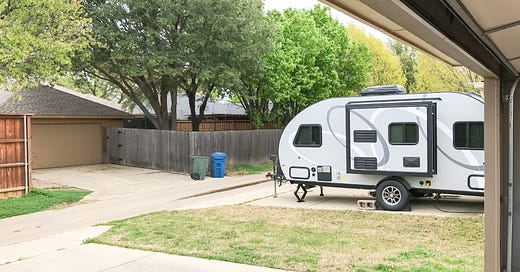


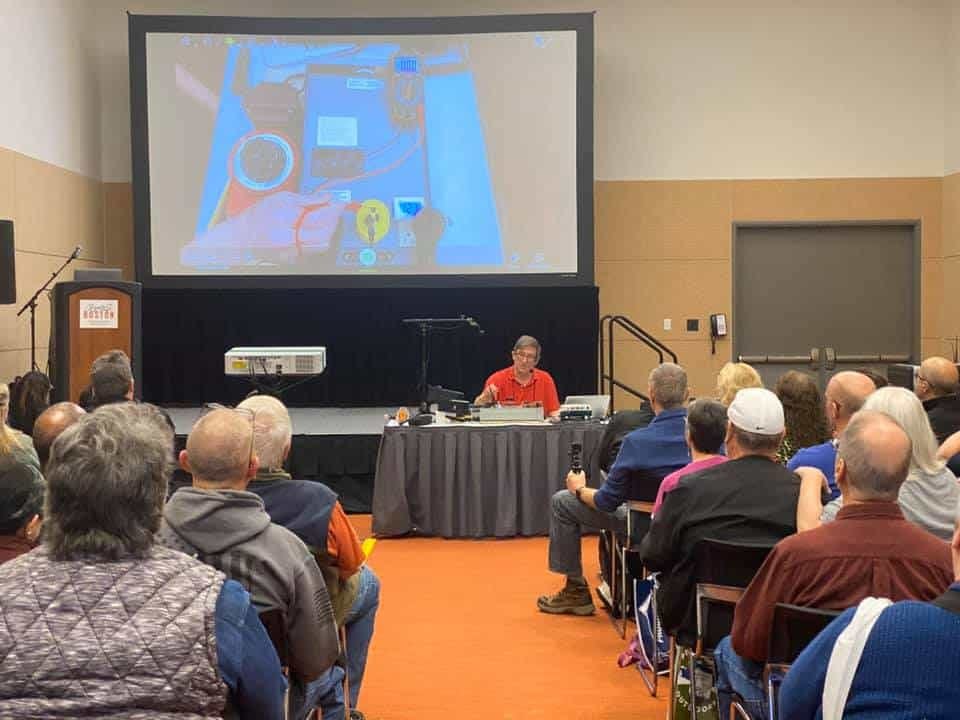

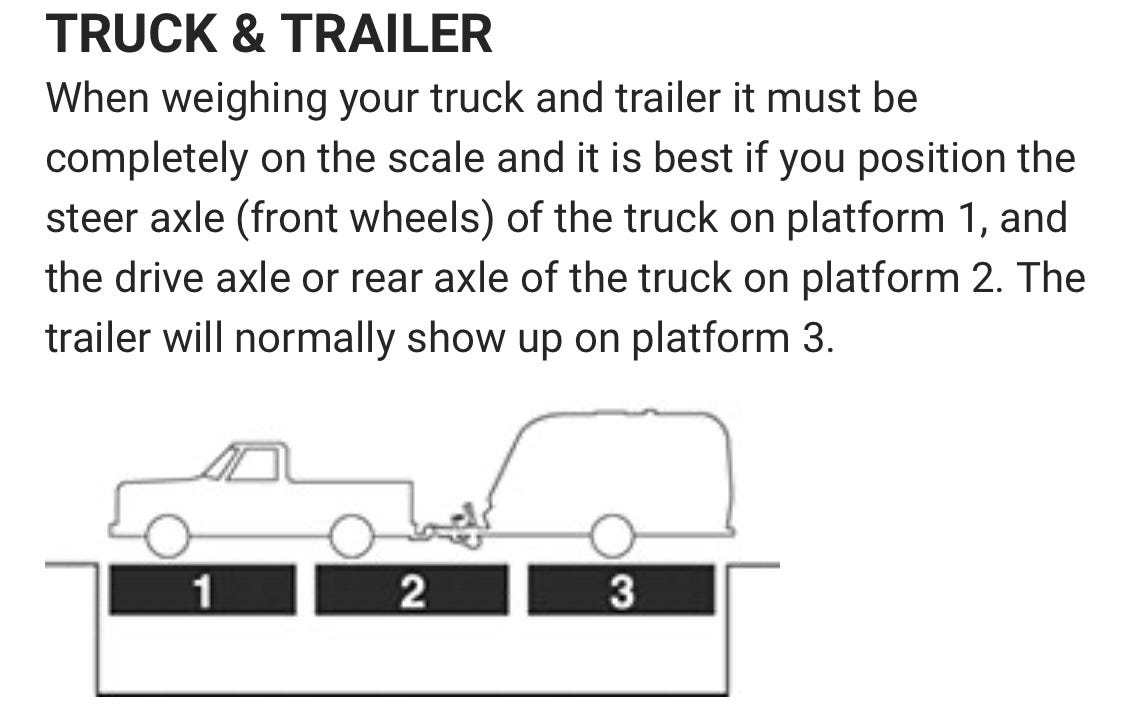
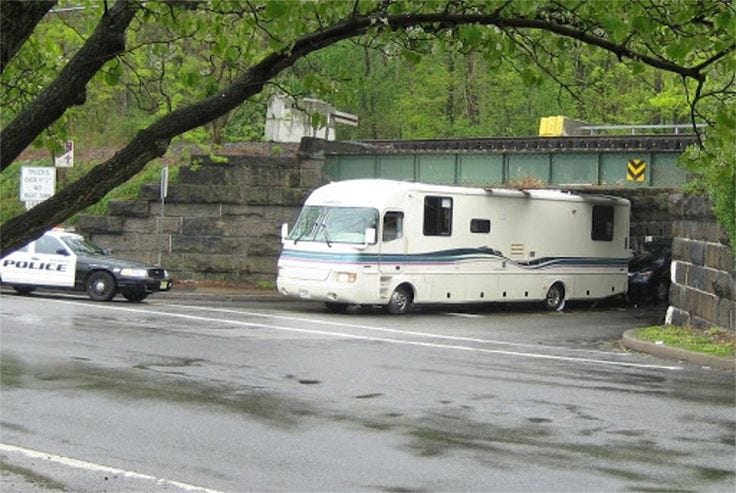
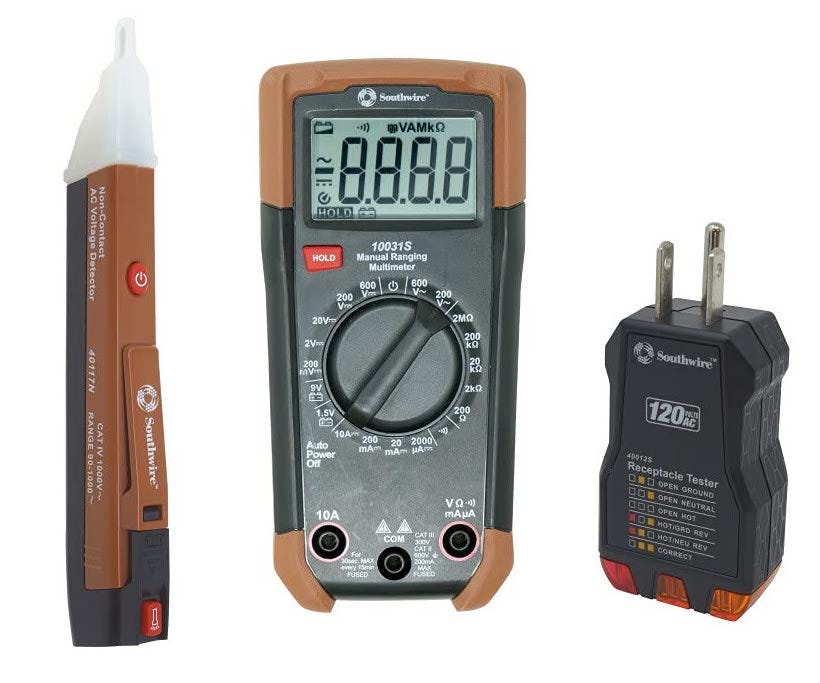
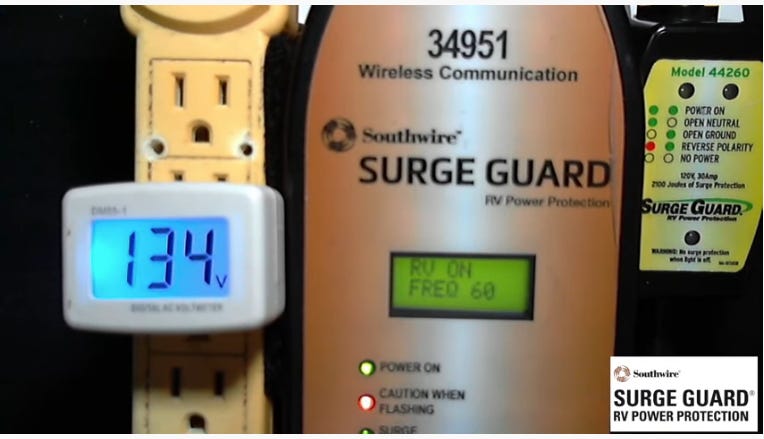

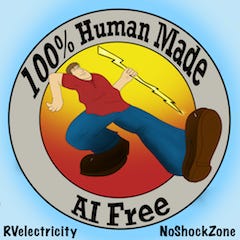
I’d add to your list to try to camp with (hopefully experienced) friends on your first camping trip.
Good content from both parties. Especially the part about learning BEFORE buying. The wife and I signed up to RV forums, magazines, seminars, etc. two years before buying. That made our first trips so much easier.
We also rented a trailer similar to the one we were considering buying for a week. The main thing we learned was that we could spend a week in just 22 feet without killing each other. (Married 47 years at the time.)
re: packing
I always pack a few more tools, manuals, and first aid items than I'm capable of using. The premise being that I'm liable to meet someone with those skills who will jump in given some resources.
The tool part paid off several times while off-roading. Once in Death Valley, when a military trainer of helicopter mechanics helped me disable a car alarm that had failed preventing the engine from starting. Given his day job, he didn't fix it for me but led me step by step through the process.